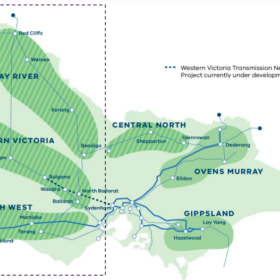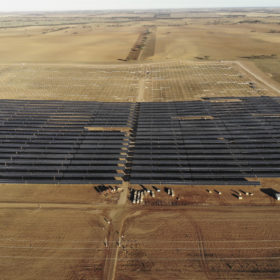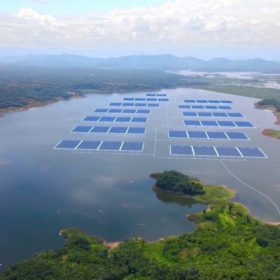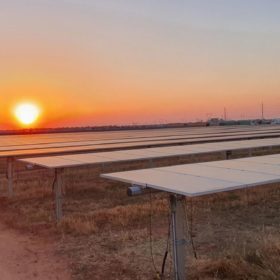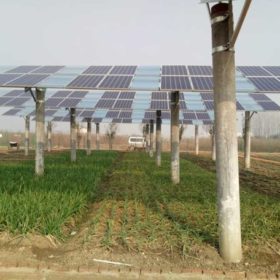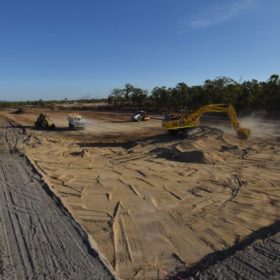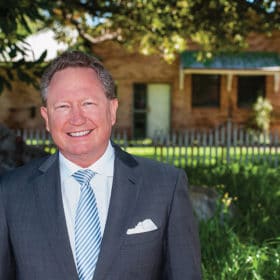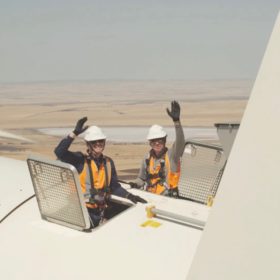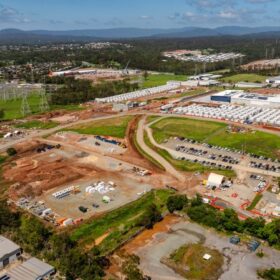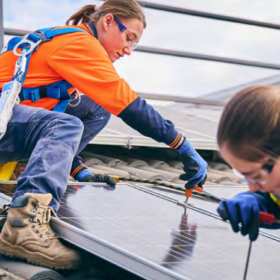REZ wriggle on – Queensland and Victoria seek input
Both Victoria’s and Queensland’s state governments are moving on their renewable energy zones (REZs) with tight deadlines looming for hopeful projects in Victoria, while further north the government is eager to hear from local communities.
South Australia’s constrained renewables to be unleashed as four new syncons spin into action
South Australia is a global hero for its demonstration of a rapid transition to renewable generation. But as renewables supplied more than 60% of the state’s electricity, and pushed out coal and even gas-fired generation, cracks appeared in the system strength and inertia required to keep the grid reliably running. ElectraNet has deployed old, clean-running technology — synchronous condensers — to smooth the gaps.
Work begins on 145 MW floating solar plant in Indonesia
South-East Asia’s biggest floating PV installation is under construction by Masdar and Indonesian energy company PT PJB. The two companies secured a PPA for the project with state electricity company Perusahaan Listrik Negara (PLN) in January 2020. The agreed tariff is US$0.0581/kWh.
South Australia identified as possible base for international hydrogen supply chain
Japan’s biggest oil refiner Eneos and French renewables developer Neoen have announced they will undertake a joint study looking at the potential development of an international supply chain for an affordable and stable supply of green hydrogen produced from renewable energy in South Australia.
Octopus Group partners with CEFC to accelerate solar farm projects
The Australian arm of global fund manager Octopus Group has expanded its renewable energy portfolio, teaming with the Clean Energy Finance Corporation to purchase the rights to develop two proposed utility scale solar-storage hybrid power plants in Victoria’s Gippsland region.
Novel plant design for agrivoltaics improves yield
Developed by Chinese researchers, the novel design methodology consists of utilising metal brackets as mounting structures, conventional solar panels, and a grooved glass plate placed between the solar panels. According to its creators, it ensures a farmer’s average income increases by 5.14 times, including the solar power generation business. A system built with this approach should cost around €715 (AU$1145) per kW installed.
Construction of Jabiru solar+storage hybrid project hits next phase
Work on the Jabiru Hybrid Renewable Project – featuring solar PV and battery energy storage – has achieved another milestone with project developer Energy Developments Limited confirming clearing works for the power plant being built in the World Heritage-listed Kakadu National Park are now complete.
Australian firm partners with JSW Energy on green hydrogen projects in India
Australia-based Fortescue Future Industries has partnered with JSW Energy arm on green hydrogen production and application in India.
Powering Australian Renewables completes $2.7 billion Tilt Renewables takeover
Powering Australian Renewables Fund, a partnership between AGL Energy and QIC, has formally taken control of Tilt Renewables on the same day the consortium called on the Australian federal government to set a net zero 2050 target.
AEMO’s 2021 IASR sets new scenarios and ambitions for Australia’s solar industry
Solar PV is an important contributor to all energy scenarios presented in AEMO’s latest “Input, Assumptions and Scenarios Report,” but what’s the best possible outcome it can enable?
